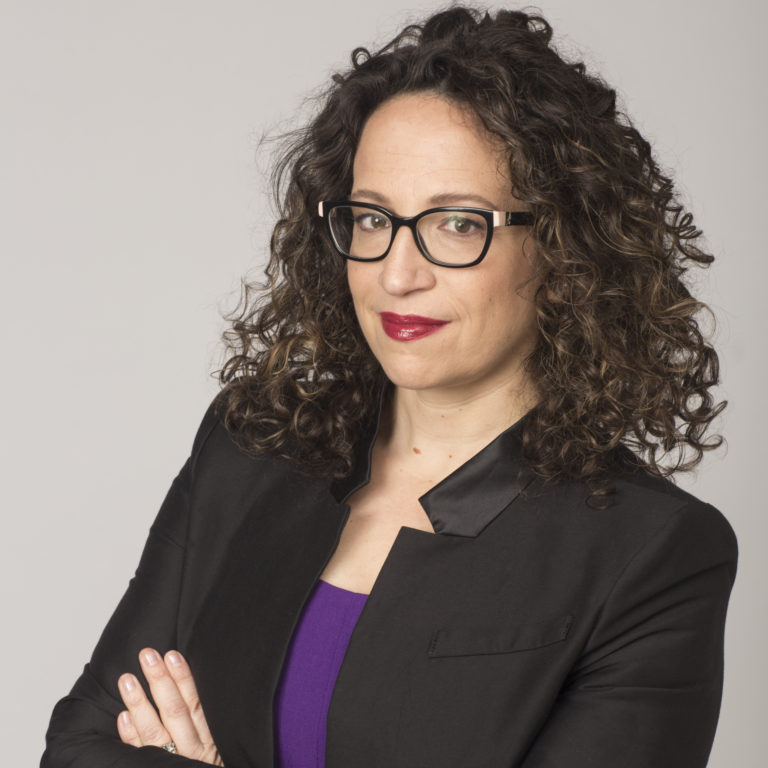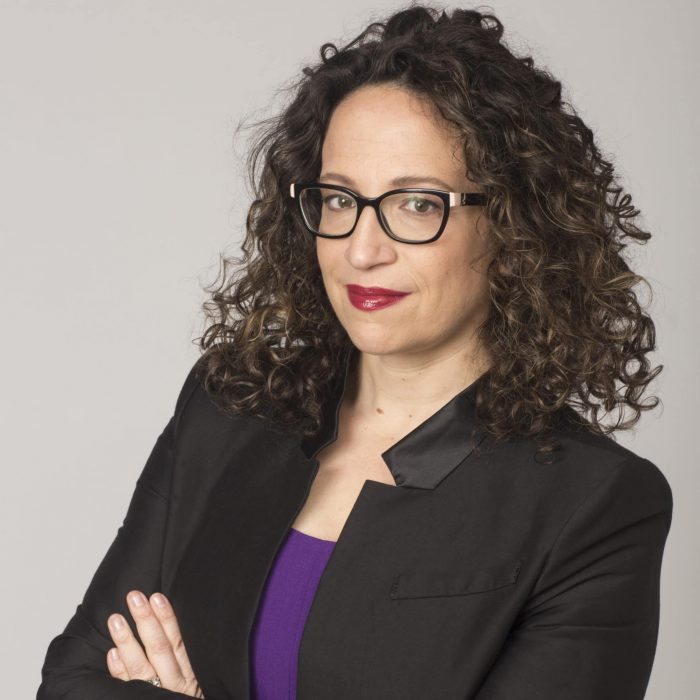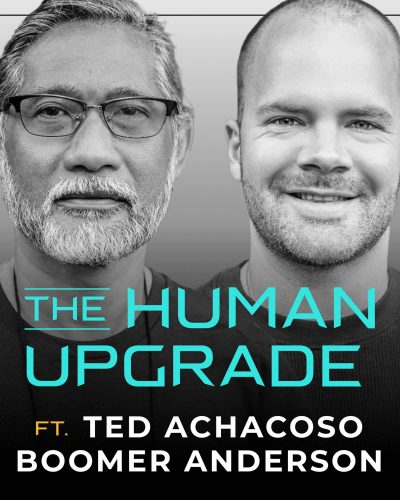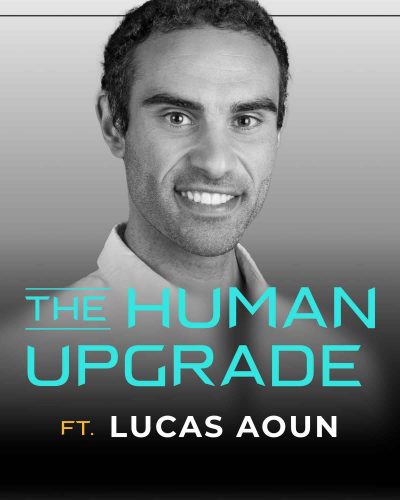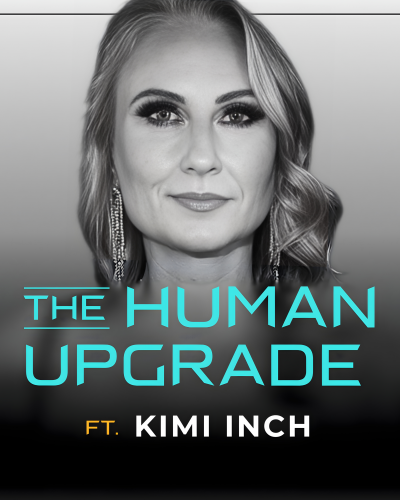In this Episode of The Human Upgrade™...
… you’ll get a look at synthetic biology (SYNBIO) through the lens of quantitative futurist Amy Webb in Part 2 of a special two-part episode. The Part 1 episode #913 explores the scientific perspective with microbiologist and geneticist Andrew Hessel.
Amy and Andrew recently authored, “The Genesis Machine: Our Quest to Rewrite Life in the Age of Synthetic Biology.” SYNBIO is the promising and controversial technology platform that combines biology and artificial intelligence. Amy investigates what SYNBIO means for people, commerce and the planet.
“This is a book about science,” Amy describes, “but I did not want to write a science book. This is also a business book. It’s an understanding-your-own-body book.”
She’s a futurist who works with data and does predictive modeling. Her academic background includes game theory and economics
Amy founded the Future Today Institute to help companies understand the forces that will shape their futures. She’s a professor of strategic foresight at the NYU Stern School of Business and a Visiting Fellow at Oxford University’s Säid School of Business. She writes extensively about biotechnology, artificial intelligence, technology policy, and business strategy.
“Synthetic biology gives us optionality. It doesn't give us answers, it gives us options. It gives us some ability to cope with the external forces over which no one person has control.”
Amy Webb, author & futurist
“This emerging field of science—synthetic biology—promises to reveal how life is created and how it can be recreated, for many varied purposes, as explained in “The Genesis Machine:”
- to help us heal without prescription medications,
- to grow meat without harvesting animals, and
- to engineer our families when nature fails us.
With SYNBO developments come a slew of considerations about how to manage it responsibly.
“For the most part, in the US, the regulation is on the end product,” Amy says. “Nobody wants to regulate the process, because we don’t want to hamper innovation. However, it does start to raise some gnarly questions when we’re talking about alternative uses or different uses for some of these technologies, or cross-border use.”
“There’s some alignment globally on what’s called germline editing, which is when you edit the genome to make it heritable. So whatever that is passes on. At the moment, just about 190 countries have aligned [to agree] that they don’t want that to happen. But outside of that, there’s a lot of confusion.”
Enjoy the show!
LISTEN: “Follow” or “subscribe” to The Human Upgrade™ with Dave Asprey on your favorite podcast platform.
REVIEW: Go to Apple Podcasts at daveasprey.com/apple and leave a (hopefully) 5-star rating and a creative review.
FEEDBACK: Got a comment, idea or question for the podcast? Submit via this form!
SOCIAL: Follow @thehumanupgradepodcast on Instagram and Facebook.
JOIN: Learn directly from Dave Asprey alongside others in a membership group: ourupgradecollective.com.
- Our Partners
- Links & Resources
- Key Notes
Non-Tobacco Nicotine Alternative:
https://lucy.co, use code DAVE20 to get 20% off your first order of pouches, gums, or lozenges
Biostack for High Performance:
https://vatellia.com, use code DAVE2022 to save 10% or subscribe and save 15% + receive a free bottle of Kale Buster
- You call yourself a quantitative futurist. Isn’t that the opposite of a futurist? 00:54
- I operate in VUCA space, which is volatility, uncertainty, complexity, and ambiguity. There’s still data, there’s still decisions to be made, but we are comfortable with some ambiguity. – 3:18
- On a cellular level, I don’t think we do have free will. I think there’s a lot of automation. I mean we are, after all, just squishy robots. – 6:13
- We distract ourselves. We don’t have to just sit with uncertainty. I think, again, we cover this a ton in the book, but as it relates to your biology and your neurochemistry, it’s like we want all the answers all the time. Sometimes we don’t know the answers, or sometimes the answers are just not what we thought they were going to be. – 13:57
- Microsoft is doing all this crazy work in DNA storage. It’s also doing some pretty amazing work in agriculture and figuring out ways to think through synthetic biology and CRISPR and sensors on plants. – 15:56
- One application of this technology could be that we mitigate some of the climate damage. We can engineer leaves. – 19:54
- I may or may not have something in my biological quiver. But if I don’t know what that thing is and I don’t have the set of instructions, I don’t know what I’m supposed to do. The messenger RNA is the instructions. That’s all. – 26:09
- We’ve got a great story in the book about golden rice, which is a real heart-wrenching story of a couple of scientists, one of whom grew up during the Holocaust. – 30:21
- This IP stuff is not going to go away. The question is who should own the IP to a living organism? What happens if somebody else has your DNA? Do you have some rights over it? – 33:53
- The more research we do, the better ability we have to triangulate what does make sense and what doesn’t make sense. So that’s happening alongside the emergence of existential threats like climate change and insecurity in our global food supply and lack of fresh water or, in some cases, way too much water. – 40:54
- This is the same exact process that would naturally occur, except that it’s much better, because you could start with heritage chicken cells, stem cells, you put them into a bio reactor with some delicious amino acids, the same wonderful nutrients that would’ve been in that mother hen. – 44:23
- My hope for the future is that we have a ton of sex, and then it’s awesome. But that we have the option to choose IVF because it’s the better way to make a baby. – 50:03
- I don’t mean to make a super heady computer analogy here. But if we suddenly have right-level permissions to our own code, don’t we want to take advantage of that? Why would we not want that? I don’t think this is about playing God. I think this is about playing editor. – 53:58
- We also have some potential dual-use challenges that fall within the realm of something called gain-of-function research. – 56:55
- Genetic surveillance is another big problem. The United States, in 2019, was trying to pass some legislation that would’ve mandated anybody caught at the southern border to have their DNA scraped and put into a database. – 59:32
